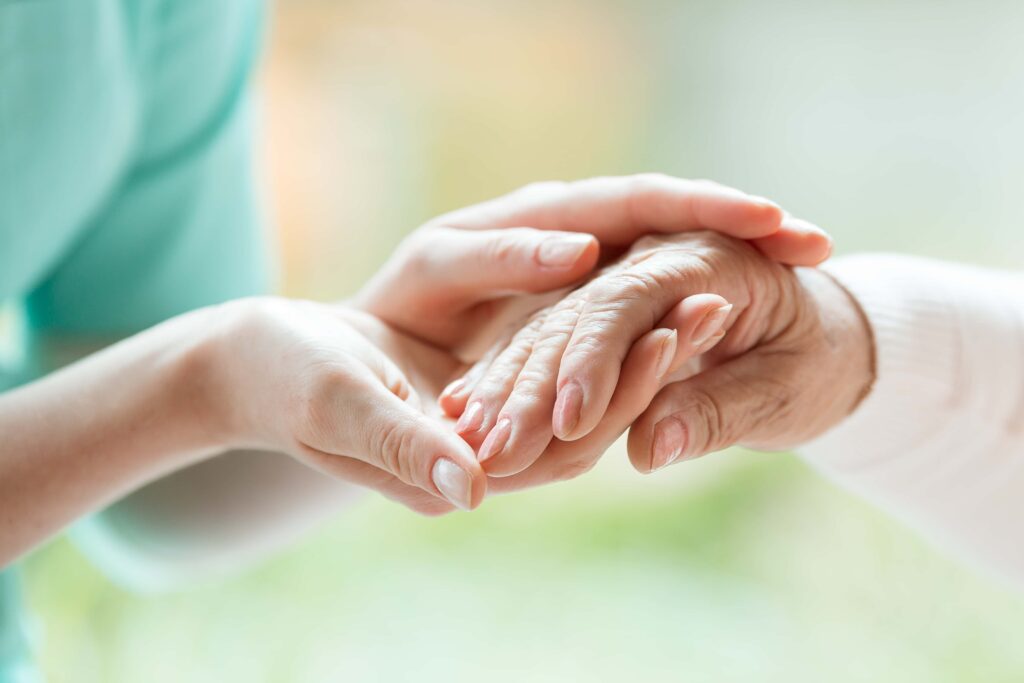As our loved ones age, ensuring they live with dignity, comfort, and support becomes a top priority. For many families, in-home care has emerged as a preferred solution—allowing elderly individuals to receive the assistance they need while remaining in the familiar surroundings of their own home. But what exactly is home care, and how does it enhance the quality of life for seniors?
What Is In-Home Senior Care?
In-home senior care refers to a range of supportive services provided in a senior’s residence. These services can include help with daily activities, companionship, medical care, and emotional support. Unlike nursing homes or assisted living facilities, home care allows seniors to remain in an environment they know and love—often leading to greater happiness and stability.
There are two primary types of in-home care:
- Non-medical home care: Includes help with grooming, bathing, meal preparation, errands, and companionship.
- Home health care (medical): Provided by licensed professionals and includes medication administration, wound care, physical therapy, and chronic disease monitoring.
Choosing between these options depends on the individual’s specific health needs, mobility, and level of independence.

Types of Home Care Services Offered (Medical vs. Non-Medical)
Whether the goal is to provide a helping hand or manage a medical condition, home care can be tailored to the senior’s personal needs. Services may include:
- Personal care assistance (bathing, dressing, hygiene)
- Mobility support
- Meal planning and preparation
- Medication reminders or administration
- Transportation to appointments
- Light housekeeping
- Skilled nursing care
- Physical or occupational therapy
- 24/7 supervision if needed
These services are often delivered by certified caregivers, registered nurses, or therapists, depending on the level of care required.
Who Can Benefit from Home Care?
Home care isn’t just for the seriously ill. Many elderly individuals—especially those with mobility issues, chronic illnesses, or who are simply facing age-related decline—can benefit from a helping hand. It is also a comforting solution for seniors recovering from surgery or hospital stays.
Families benefit too, knowing their loved one is safe and well-cared for. Home care provides flexibility, allowing adult children to maintain their responsibilities while ensuring their parent receives personalized care.
Emotional and Mental Health Benefits
While physical support is a major component of in-home care, the emotional and psychological benefits are equally transformative. Elderly individuals often experience loneliness, depression, or anxiety as their independence declines. In-home care helps address these emotional challenges in ways that institutional care settings sometimes can’t.
Reducing Loneliness and Social Isolation
Loneliness is more than just an emotional state—it can have serious health implications, including increased risk of cognitive decline and heart disease. Many seniors live alone, far from family or friends, and may go days without meaningful social interaction.
In-home caregivers provide more than practical support—they offer companionship. Regular, friendly interactions with a caregiver can reduce feelings of isolation and contribute to an improved sense of self-worth and connection.
Emotional Support Through Companionship
Caregivers often become trusted confidants for seniors. Through shared stories, games, meals, or walks, they help build trust and emotional comfort. This companionship helps seniors feel valued and cared for, boosting their mental well-being.
In some cases, caregivers are also trained to identify early signs of mental health concerns like depression or cognitive decline, allowing families and healthcare providers to intervene early.
Peace of Mind for Families
Families often experience significant stress and anxiety when they can’t be physically present for aging loved ones. Knowing a trusted professional is visiting regularly, managing medications, and offering emotional support brings peace of mind.
Regular updates from the caregiver, care plans, and open communication help families stay informed and involved in their loved one’s well-being—even from afar.
Physical Health Support at Home
Beyond emotional care, home care plays a vital role in maintaining or even improving a senior’s physical health. When seniors receive consistent and personalized assistance, they are more likely to stick with treatment plans, stay active, and avoid complications.
Assistance with Mobility and Daily Activities
Simple tasks like getting out of bed, bathing, or walking can become difficult with age. Without support, seniors may become sedentary, which can lead to further health decline.
Caregivers help with mobility exercises, transfers, and safe ambulation, ensuring the elderly stay as active and independent as possible. They also reduce the risk of strain injuries or falls, which are common causes of hospitalization in older adults.
Medication Management and Monitoring
Medication errors—such as forgetting doses or taking the wrong pills—can be dangerous. With multiple prescriptions, managing medication schedules becomes complex.
Home care professionals can assist with:
- Daily medication reminders
- Organizing pillboxes or schedules
- Monitoring side effects or interactions
- Coordinating with physicians or pharmacists
This oversight reduces hospital visits and helps seniors maintain stability in chronic conditions like diabetes, heart disease, or arthritis.
Preventing Falls and Accidents
According to the CDC, falls are the leading cause of injury among older adults. Home caregivers help identify and eliminate fall hazards such as loose rugs, poor lighting, or cluttered walkways.
They also assist with safe transfers, recommend assistive devices like walkers or grab bars, and offer guidance on safe footwear or balance exercises. With fewer accidents, seniors can age in place safely and confidently.
Maintaining Independence and Dignity
One of the most powerful ways home care improves quality of life is by helping seniors maintain their independence. As people age, the loss of control over daily life can be disheartening. Home care offers the balance of needed support without compromising personal autonomy.
Personalized Care Plans Respecting Individual Needs
Unlike institutional care, where routines are often rigid and standardized, home care offers customized support. Caregivers adapt to the senior’s lifestyle, preferences, and values. This can include meal choices, daily schedules, or even preferred activities.
Personalization ensures that seniors continue to feel in control of their lives, reinforcing self-worth and dignity.
Supporting Daily Routines and Preferences
Whether it’s starting the day with a favorite cup of tea, reading the newspaper, or taking a short walk in the garden—honoring daily rituals plays a significant role in mental well-being.
Caregivers work with seniors to maintain those small, meaningful routines, making sure they feel respected and understood. This level of attention helps older adults live each day with a sense of normalcy and joy.
Safety and Security in Familiar Surroundings
Home is more than just a place—it’s a space filled with memories, comfort, and peace. Seniors who remain in their own homes often report lower levels of stress, better emotional stability, and an increased sense of safety.
Home Modifications and Emergency Response
Part of home care includes evaluating the living environment for potential risks. Caregivers or professionals may recommend:
- Installing grab bars in bathrooms
- Adding non-slip mats
- Improving lighting in stairways and hallways
- Removing clutter and trip hazards
Some care plans also include emergency response systems or 24/7 monitoring, ensuring help is available at the touch of a button.
These modifications, combined with caregiver supervision, provide a secure living environment without the need to relocate.
Reduced Risk of Infections Compared to Facilities
In group care settings, illness can spread quickly. Seniors are especially vulnerable to infections, including influenza and pneumonia.
Receiving care at home limits exposure to large groups, making it a healthier option for individuals with compromised immune systems or chronic health conditions. This was particularly evident during the COVID-19 pandemic when home-based care provided safer alternatives to institutional settings.

The Role of Family in In-Home Care
Family involvement is often central to a senior’s care journey. With in-home care, families can remain actively involved, fostering stronger relationships and improved outcomes for their loved ones.
Collaboration Between Caregivers and Loved Ones
Unlike in nursing facilities where family visits might be scheduled or limited, home care enables ongoing collaboration. Family members can work directly with caregivers to:
- Share important health information
- Customize care routines
- Discuss emotional or behavioral changes
- Monitor progress or setbacks
This team-based approach ensures everyone is on the same page—improving trust, communication, and consistency of care.
Enhancing Family Relationships
When caregiving is shared or fully handled by professionals, families often experience less stress and burnout. This allows for more quality time spent together—focused on connection rather than chores or medical tasks.
Siblings, children, or spouses can shift from being full-time caregivers to being supportive loved ones, strengthening bonds and preserving cherished relationships.
Financial Considerations of Home Care
A common concern among families exploring care options is cost. While home care may seem expensive at first glance, it’s often more affordable than long-term residential care—and offers greater flexibility.
Comparing Costs: Home Care vs Nursing Homes
| Care Option | Average Monthly Cost | Flexibility | Personalization |
| Home Care (Part-time) | $2,500 – $4,500 | High | Very High |
| Assisted Living | $4,500 – $6,500 | Medium | Medium |
| Nursing Home (Private) | $7,000 – $10,000+ | Low | Low |
Note: Costs vary by location and care requirements.
With home care, families can adjust the number of caregiving hours per week to match their budget. It’s also common to combine family caregiving with part-time professional help.
Insurance, Medicare, and Funding Options
While Medicare typically doesn’t cover non-medical home care, some services (especially post-hospitalization) may be covered. Long-term care insurance, Medicaid, or Veterans Affairs benefits may also provide financial assistance.
It’s important for families to research and speak with care coordinators to understand what options are available. Some local nonprofits and state programs offer subsidized care or sliding-scale services based on income.
Choosing the Right Home Care Provider
Selecting the right caregiver or agency is a deeply personal decision. After all, this person or team will be supporting your loved one in their most vulnerable moments. Taking time to choose the right provider ensures quality, trust, and peace of mind.
What to Look for in a Quality Home Care Agency
A reputable agency will offer:
- Licensed and insured caregivers
- Background checks and training requirements
- Clearly defined care plans
- Regular supervision and quality assurance
- Positive client testimonials
- 24/7 customer support or emergency line
Additionally, some agencies offer specialized care for conditions like Alzheimer’s, Parkinson’s, or stroke recovery.
Questions to Ask When Interviewing Providers
- How do you screen and train your caregivers?
- Can we customize the care schedule?
- What happens if our regular caregiver is unavailable?
- How do you handle emergencies?
- Do you involve families in creating the care plan?
- Can you provide references or reviews from other clients?
Asking the right questions helps ensure your chosen provider is both professional and compassionate, two qualities that go hand-in-hand for quality elderly care.
Frequently Asked Questions (FAQs)
1. How do I know if my loved one needs home care?
Look for signs such as difficulty with daily tasks, frequent falls, medication mismanagement, loneliness, or unexplained weight loss. These may indicate your loved one is struggling with independence and safety. A professional assessment from a home care agency or physician can help determine the appropriate level of care.
2. Is home care only for people who are seriously ill?
Not at all. Home care supports a wide range of needs—from light housekeeping and companionship to post-surgery recovery and skilled nursing. Many elderly individuals choose home care simply for help with routine activities or to maintain their lifestyle as they age.
3. Can I combine home care with family caregiving?
Absolutely. Many families choose a hybrid approach, where professional caregivers assist for a few hours each day or week, while family members provide support during other times. This arrangement can ease caregiver burnout and provide more comprehensive care for the senior.
4. How do I make the home safer for my elderly parent?
Start by removing tripping hazards like rugs and clutter, improving lighting, and installing grab bars in key areas like the bathroom. A home care agency may offer a safety evaluation, identifying additional ways to adapt the home to better support your loved one’s needs.
5. What should I expect in the first week of home care?
The first week often involves a care plan review, introductions between the senior and caregiver, and small adjustments to routines. It’s normal for it to take a few visits for your loved one to feel comfortable. Open communication between the caregiver, senior, and family helps build trust and set expectations.

Conclusion: Compassionate Care That Honors Aging
The aging process is a natural, deeply personal journey. For seniors, the ability to age with dignity, comfort, and purpose can make all the difference in their happiness and well-being. Home care doesn’t just meet physical needs—it nurtures the emotional, mental, and spiritual aspects of life as well.
By providing assistance in a familiar setting, respecting personal routines, and encouraging connection, home care enhances the quality of life for elderly individuals in ways that institutional care often cannot. It supports independence while offering the safety net families seek for their loved ones.
This is where Fijian Love-in Caregivers can help. Known for their deep sense of compassion, respect, and family-oriented values, Fijian caregivers bring not only professional support but also heartfelt connection. Their nurturing presence helps seniors feel truly seen, heard, and valued, reinforcing the idea that care is about more than just tasks—it’s about love, dignity, and trust.
For those beginning to explore care options, know that home care is not about replacing family—it’s about reinforcing love with professional support. Whether it’s a few hours a week or full-time care, services like those offered by Fijian Love-in Caregivers bring peace of mind, renewed connection, and, above all, a better quality of life.

